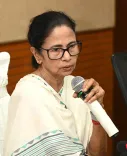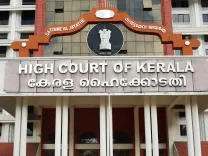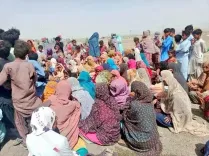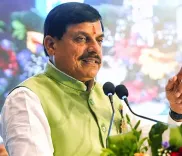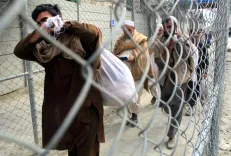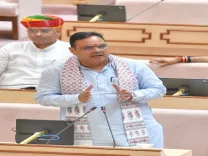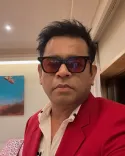Our goal is to establish India as a 'water-secure nation' by 2047: Union Minister

Synopsis
Key Takeaways
- India aims for water security by 2047.
- 12 crore toilets built under sanitation initiatives.
- 15 crore households have clean drinking water access.
- Focus on rainwater harvesting and flood control.
- Collaboration among states essential for water management.
Jaipur, Feb 18 (NationPress) Union Jal Shakti Minister C.R. Patil announced on Tuesday that the Union government is dedicated to establishing India as a 'water-secure nation' by 2047.
He highlighted Prime Minister Modi’s emphasis on sanitation, which resulted in the construction of 12 crore toilets, aiding 60 crore people and significantly decreasing waterborne illnesses like diarrhoea.
“Through the Jal Jeevan Mission, 15 crore households now have access to clean drinking water, and 25 lakh women have received training in water purity testing. The Union government is devoted to ensuring India is a water-secure nation by 2047,” stated the minister during the second All India Conference of State Water Ministers in Udaipur.
He mentioned that the ‘Catch the Rain’ initiative, which aims to promote rainwater harvesting, has also gained traction, with migrants assisting in the creation of recharge wells in villages.
Patil declared that Rajasthan will experience an increased water supply through the revised PKC Link Project, promising substantial future advantages.
He stressed the necessity of a swift agreement between Rajasthan and Haryana under the Yamuna Water Accord to enable surplus water transfer to Rajasthan.
He urged stakeholders to commit to making India water-secure by 2047, ensuring access to clean drinking water, alleviating farmers' water challenges, and rejuvenating rivers and reservoirs.
Meanwhile, Chief Minister Bhajan Lal Sharma stressed the importance of achieving water self-sufficiency in India through comprehensive water conservation strategies.
He highlighted that ensuring a secure and prosperous future for future generations necessitates a well-structured plan, incorporating essential aspects such as agricultural and urban water management along with technological advancements.
Sharma expressed appreciation to the Union Jal Shakti Minister for organizing this event, viewing it as a testament to cooperative federalism.
He noted that while water remains a state issue under the constitutional framework, the dedicated efforts of the Prime Minister have turned it into a collaborative venture among states.
Sharma emphasized that water self-reliance is a vital pillar in realizing the vision of a developed India by 2047 under the leadership of Prime Minister Narendra Modi.
He commended the Prime Minister’s extensive initiatives through the Jal Jeevan Mission, which has successfully delivered tap water to millions of households nationwide, including Rajasthan. The state government is actively working to extend these benefits to the remaining families.
Odisha Chief Minister Mohan Charan Manjhi underscored the state’s responsibility in managing major rivers such as the Mahanadi, Godavari, Narmada, and Brahmaputra.
He emphasized Odisha’s focus on flood control and water conservation to tackle uneven rainfall distribution, with women’s self-help groups playing a crucial role in groundwater recharge.
Tripura Chief Minister Manik Saha noted that with 70 percent of the state covered in forests and a majority of the population dependent on agriculture, enhancing irrigation infrastructure is vital to improving productivity and farmer incomes.
“Given the limited water storage capacity, Tripura is prioritizing rainwater conservation structures and small irrigation dams,” he stated.
The conference also featured insights from Karnataka Deputy Chief Minister D.K. Shivakumar, Himachal Pradesh Deputy Chief Minister Mukesh Agnihotri, Chhattisgarh Deputy Chief Minister Arun Saw, and Union Water Resources Secretary Debashree Mukherjee. During the event, the Chief Minister participated in the Jal Kalash ceremony and contributed to the monograph Water Heritage Site of Nari Shakti Se Jal Shakti, emphasizing the role of women in water conservation efforts.
The Rajasthan Chief Minister and Union Jal Shakti Minister paid floral tribute to the statue of Maharana Pratap at Maharana Pratap Gaurav Kendra. He also launched the borewell program under Jal Sanchay-Jan Bhagidari under the Karmabhoomi to Matribhoomi campaign.

